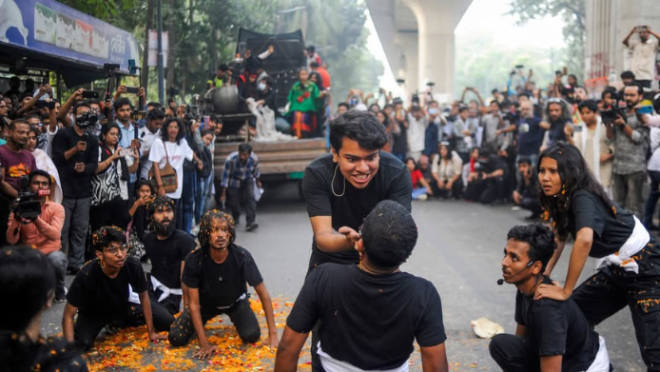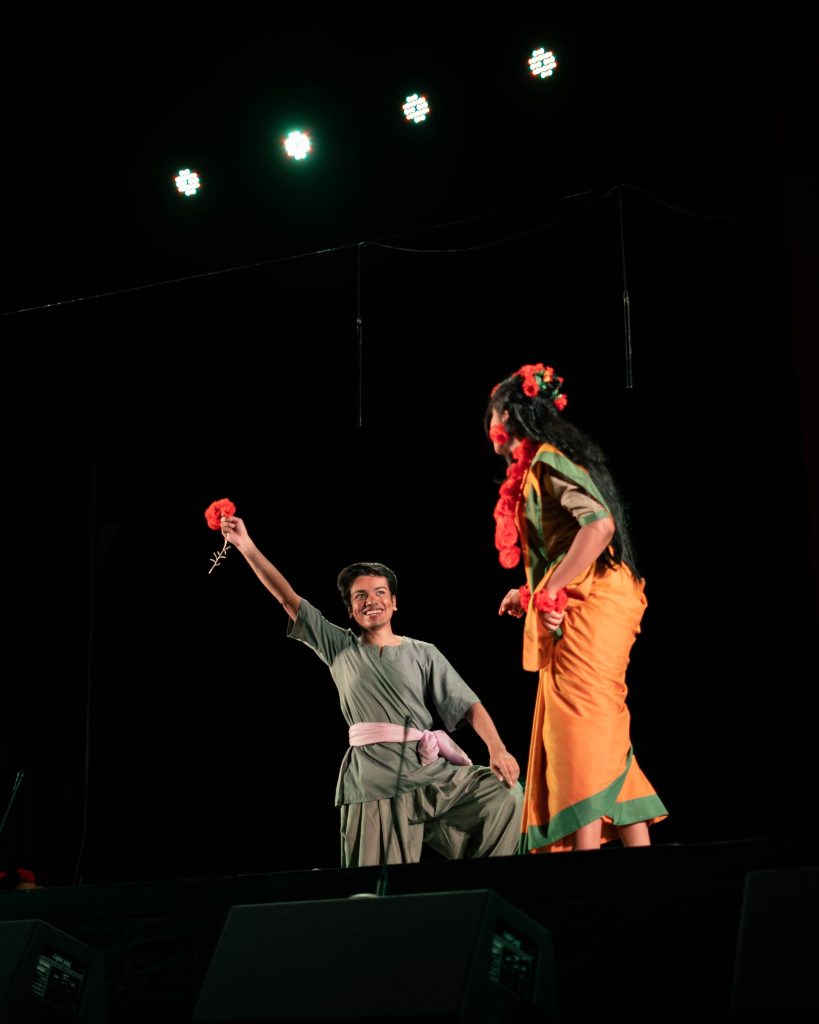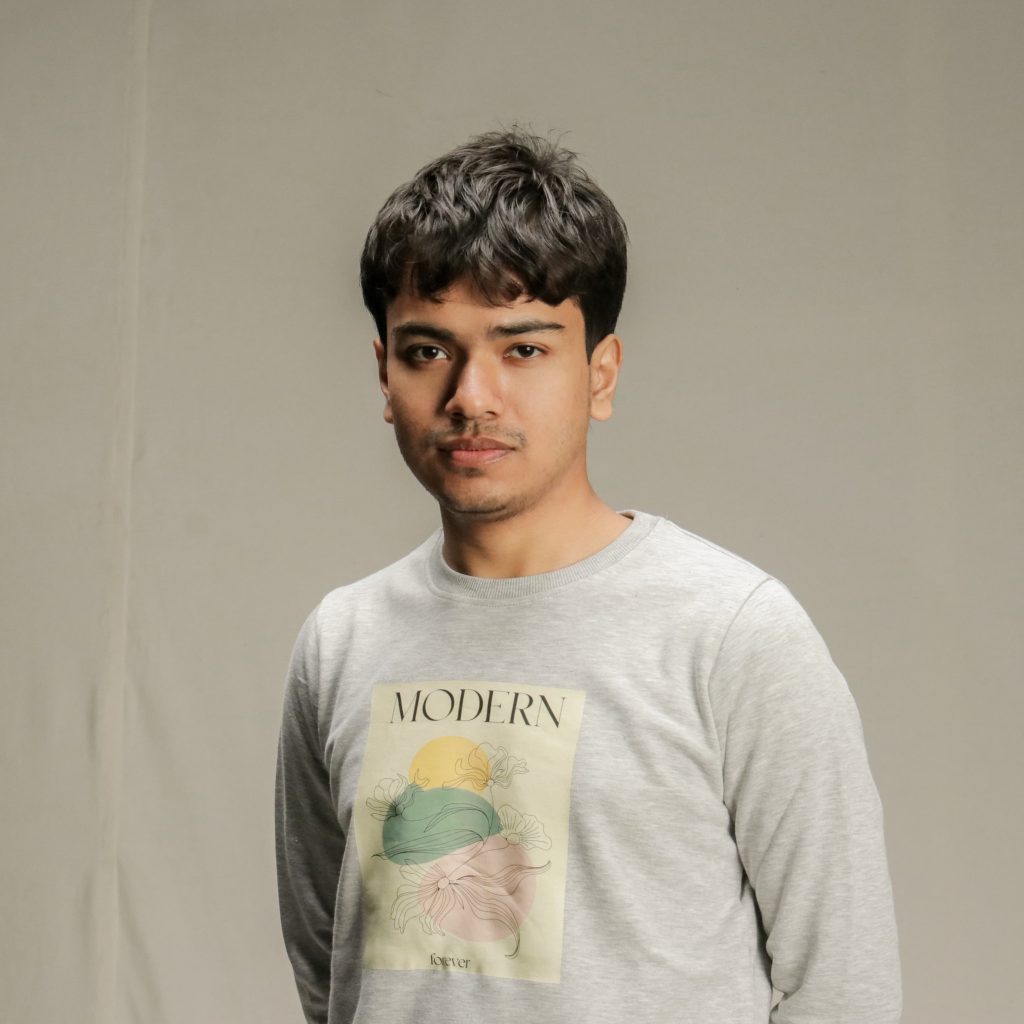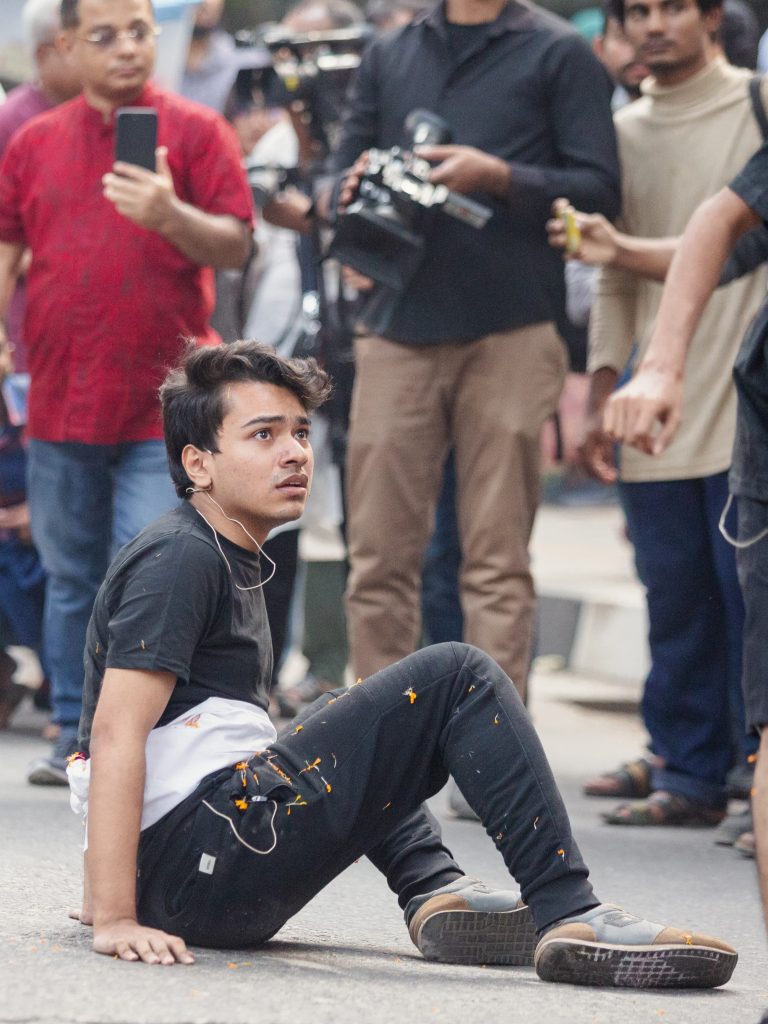How do you become a theatre artist?
How do you become a theatre artist?

I have always been mesmerised by theatre. The cinematics, the drama and the incredible acting – it all feels larger than life. Luckily for me, Bangladesh has always had a rich history in the arts of theatre and drama. From the works of Rabindranath Tagore to modern classics, our country has been blessed. But one must ask, have we been utilising this talent that we have? Are we making the most of it?
TBS Graduates sat down with Tahsan Bin Rafique, a prominent young theatre actor in Bangladesh, to discuss the journey to becoming a theatre actor and what the future holds for the industry in Bangladesh.
When did your love for theatrics begin?
It grew over time. I remember, in Roktokorobi rehearsals, I dressed as Kishore and brought a flower for Nandini every day. Over time, I noticed the anticipation in her eyes and realised how characters come to life, not just through my performance but through the presence of every artist.
Watching others embody their roles daily in rehearsals helped me believe in myself as Kishore. Experiences like this, with every script unfolding a new world in mind and rehearsals turning words into living beings, made me fall in love with theatre.
Tell us about your first experience in theatre
My first experience came through North South University’s Cine and Drama Club. Watching my friend Tamim perform in their post-Covid flash mob left me inspired.
The next semester, I applied to the CDC (Cine and Drama Club), and after the interview, I was called for a workshop. On the first day, they taught us their rules and distinct ways of talking, behaving, and even sitting on the rehearsal floor.

In my first semester, I expected ragging after hearing stories from friends at other universities. But at CDC, I saw that everyone, regardless of seniority, addressed each other as ‘Apni’.
The next day, Atikul Islam Joy, whom we respectfully call Joy Da, took charge as our director. He started our sessions with exercises, games, and meditation, which puzzled me at first, but I soon realised they were all part of theatre. This became a daily ritual until the day before our show.
After meditation, Joy Da split us into teams to create and perform a scene. Based on our teammate Saif’s concept, we performed on a story, and Joy Da liked it. We named it Death Loop and spent the rest of the days refining it. I must mention Raisa, my scene partner. Without her, I think I would have given up. She helped me feel more comfortable in the scene.
I observed that each person in the production had their own unique talents. It felt like everyone was a Power Ranger. And somehow, being among them made me feel like one too. That was when I realised—I had stepped through the green room door and entered the world of Narnia.
On 6 July, our workshop production was staged. Joy Da broke the fourth wall and used every inch of the NSU gallery; the entire gallery became our stage. This first experience laid the foundation for my journey, leading me to perform in twelve plays, and I’ve also starred as the lead in Ek Dupur, an avant-garde short film written and directed by Muhaimin R Chowdhury. It’s set to be released soon.
How did you manage your academics and the demanding drama life?
Honestly, it’s tough, but I make sure not to miss classes. No matter how packed my schedule is, I set aside time to study every day. If needed, I take tuitions from my peers. I only take on projects that challenge me and align with my bigger goals. This allows me the flexibility to manage my time and balance academics with my work in drama.

During the rehearsals of Roktokorobi, we had whole-day rehearsals with a call time at 9am. We’d report to the floor manager first, then rush to class when we had one. I’d take online tuition classes in the corner of the floor and write assignments between scenes. When you love something, you find a way to balance it.
What pathways did you follow to become a freelance actor?
I didn’t wait for doors to open; I walked in. CDC has the motto ‘Explore Yourself’, and that is what I did. I pushed beyond the boundaries of NSU and found Anushwar, one of the most active theatre groups. I joined when the rehearsals for Harmasis Cleopatra began.

Director Mohammad Bari trusted me and cast me in the play. Around the same time, Tariq Anam Khan reached out to CDC, specifically looking for fluent English-speaking actors for his new play Amour Et Lumière and CDC sent my name. He cast me as the lead in Amour Et Lumière. At that time, I was rehearsing in double shifts.
After that, I always made sure my name was in the right circles. The more people I met, the more doors opened.
Who has been instrumental for you in your journey?
Without a doubt, Joy Da (Atikul Islam Joy) has been instrumental in my journey. He was my first theatre director and Guru, who introduced me to the magic of theatre and the true essence of acting. Those early days under his guidance built the foundation for everything I do now in theatre and acting.
How do you view the theatre industry in Bangladesh? Where do you think it’s headed?
From my observation, the industry is in a tough spot. The lack of financial support is the biggest hurdle. Each show can take months to prepare, and most actors can’t pursue theatre full time as they can’t earn enough from this profession. Most people who still do theatre today are either addicted to the art or financially stable enough to pursue it as a passion.
Another major issue is the lack of venues. Even in Dhaka, there are only two active venues, making it hard for groups to secure slots for their shows. The contrasting availability of digital entertainment means that people are unlikely to spend hours of their day just to watch a show. This makes it difficult for theatre groups to recover their investments. Without greater support and better infrastructure, the industry may continue to decline.
What changes would you like to see in this sector?
Theatre in Bangladesh has the potential to do more than just entertain, it can inform, inspire, and drive social change. To revive it, investment, modernisation, and accessibility must be prioritised.
Actors should be able to earn a sustainable income from theatre. More venues are needed to expand the audience reach and attract sponsors. These venues should also introduce an online scheduling and ticketing system, like cinemas. Beyond infrastructure, theatre groups must evolve by enhancing their marketing strategies and finding innovative ways to recruit and retain members.
What advice would you give to newcomers?
Go as far as you can toward your dreams. Prioritise your passions but if someone truly matters like your parents, consider them too. There are no shortcuts; success demands hard work, sacrifice, and patience. Keep learning, stay humble. Surround yourself with people who are successful or progressing toward the same goals. Always stay true to your conscience and stand with what’s right. No matter how far you go, remember: a star must burn before it shines.
What is the future for Tahsan bin Rafique?
I believe the future is in Allah’s hand. Whatever is meant for me will come and what isn’t, won’t. My goal is to keep exploring and growing in my craft. I don’t believe in setting a destination because those limits possibilities. The stage, the screen, and the world—there’s a lot more to conquer.


